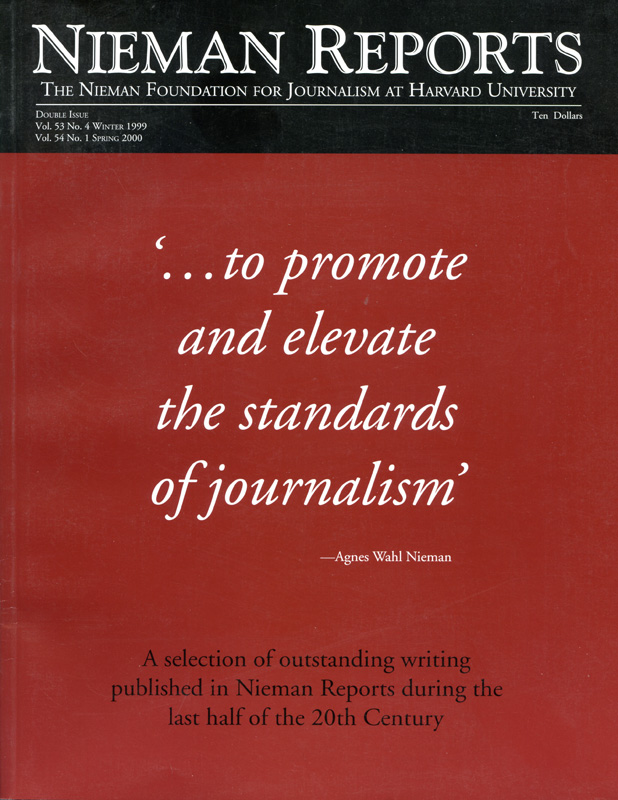[This article originally appeared in the Spring 1983 issue of Nieman Reports.]
…[E]ven at this stage [following a conference reassessing reporting from China] some facts, insights and themes emerge that can point toward answers to those large and lesser questions about wartime China reporting. Here are a few that seem to me significant:
- Most reporters came to East Asia “by accident”—as wire service people, freelancers, or student travelers prior to 1937, or perhaps as employees of the OWI [Office of War Information] after Pearl Harbor. Virtually none had studied Chinese—and still agree today that “there is no correlation between good reporters and good linguists.”
- Many belonged (as did that pioneer Edgar Snow) to the “Missouri Mafia” as graduates of the University of Missouri’s School of Journalism. The Missouri connection often led to employment in the Associated Press or United Press, and the UP’s Roy Howard was said to have a special “romantic interest” in China.
- Romantic” is also a word that the veterans used frequently to describe the atmosphere in the heyday of Chinese resistance to Japan, the years of the United Front between Nationalists and Communists from 1937 to 1941. In Hankow, the temporary capital after the fall of Nanking, the Romantic Era peaked. Suddenly, “we were part of the big world scene,” one recalled. “We were reporters of a just cause.” Before Hankow, journalists had largely worked out of that worldly Western metropolis, Shanghai; later they would molder in the Nationalists’ dank far-inland hideaway, Chungking.
- It was in Hankow that these reporters first met the notable Chou Enlai. Of all the names mentioned during Arizona reminiscences, none was cited more frequently than that of Mao’s chief emissary. Chou was accessible, articulate and charming both in Hankow and later in Chungking. One after another, these skeptical precursors of Henry Kissinger confessed their “captivation”: there was simply “no one more magnetic” than the suave and open Chou. Even when he told untruths, or something less than the truth, he commanded their admiration. (“Why,” wondered Hank Lieberman, “can only high-level Communists have a sense of humor?”)
- Once lodged in Chungking, locked into a war of attrition (with the United Front in shambles), the press corps found little “romance.” Nationalist propaganda was patently non-credible, while Nationalist censorship increasingly rankled. Not even Madame Chiang Kai-shek, who captivated millions on her 1943 trip to America, could dispel the realities of corruption, inflation and mismanagement. “It was impossible to like Madame Chiang,” said one who knew her well. “She had eight personalities,” said another. Now blockaded by Nationalist troops, Mao’s capital at Yenan became for many frustrated Chungking correspondents “the Camelot of China.”
- Frustration: Here was a theme that coexisted with romance. Prior to 1937, it seems, China reporters had found few back in America who would print (or even read) their stories. China news had to relate to hometown readers—perhaps a locally known missionary who survived a warlord shootout (while 700 Chinese, parenthetically, did not).…
James C. Thomson, Jr., Curator of the Nieman Foundation, is a specialist in Chinese history and U.S. foreign policy. He grew up in China in the 1930’s as the child of missionary educators, spent the year 1948-1949 traveling there during the climax of the Chinese Civil War, and was an East Asia policy aide at the State Department and White House, 1961- 1966.


